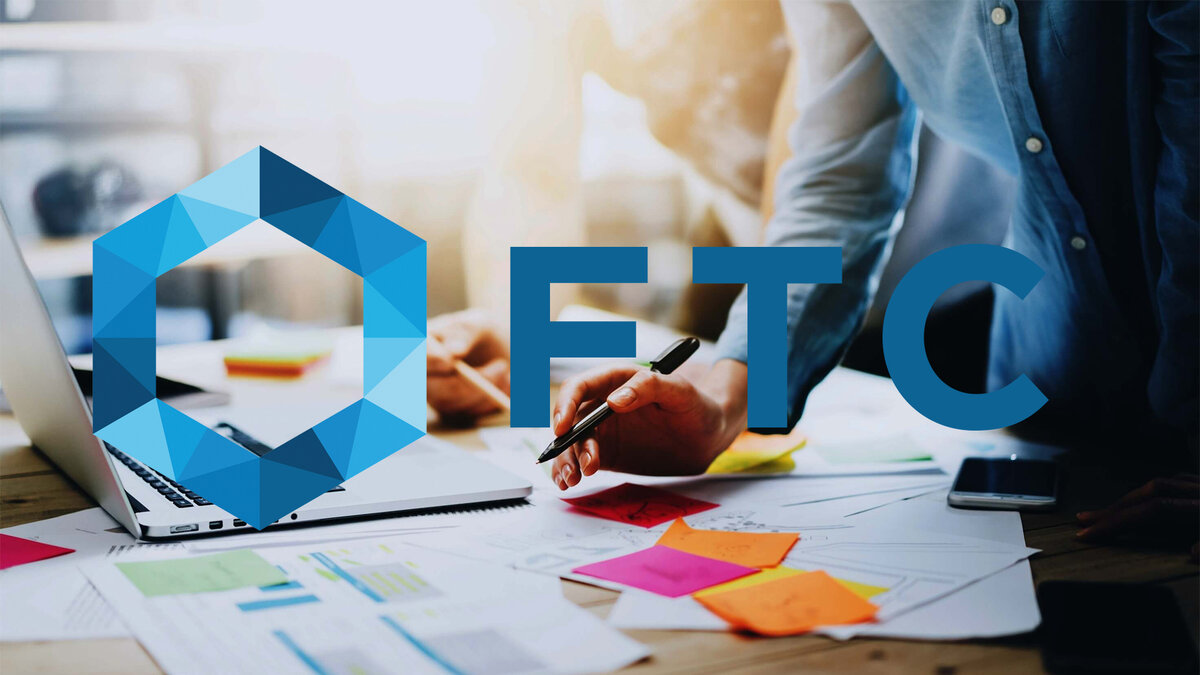In the complex landscape of the American legal system, the allocation of cases to judicial officers has garnered significant attention. This examination focuses on the mechanisms by which litigants may influence the choice of the adjudicator, raising concerns about fairness, transparency, and the overall integrity of the judicial process. Stakeholders across the spectrum are now looking closely at strategies that aim to address these challenges.
The current discourse emphasizes the need for systemic change to ensure that the assignment of cases is devoid of manipulation or bias. Legal experts and policymakers are engaging in substantial dialogue to identify effective methods for enhancing the impartiality of case management. This endeavor seeks to promote a more equitable environment where justice can be served without undue influence.
As various proposals gain traction, the implications of these discussions extend beyond legal practitioners to affect the wider public’s trust in the justice system. By scrutinizing different approaches, the aim is to establish a framework that not only deters misconduct but also reinforces the foundational principles of equality and accountability within the judiciary.
Understanding Judge Shopping in the U.S.
The practice of selecting a specific legal authority to preside over a case can raise various ethical and procedural concerns within the American legal system. This behavior can significantly impact the perception of fairness and impartiality in legal proceedings, leading to discussions about the integrity of the judiciary and the potential for exploitation of the system. It is essential to explore the factors that contribute to this phenomenon and its consequences on judicial credibility.
At its core, the act of choosing a presiding figure can be influenced by numerous factors, including perceived biases, previous rulings, and personal connections. While some may argue that this provides litigants with greater autonomy, others see it as a problematic tactic that undermines the foundational principles of justice. A deeper understanding of this practice requires examining the motivations behind it and the systemic issues that allow it to thrive.
| Factor | Description |
|---|---|
| Case Type | Certain categories of cases may attract preference for specific individuals known for favorable outcomes. |
| Perceived Biases | Litigants often attempt to identify individuals whose past decisions indicate a bias that aligns with their interests. |
| Connections | Personal relationships or networks may influence the choice of who presides over a case. |
| Timing | The timing of filing can coincide with shifts in case load, making certain individuals more accessible. |
Ultimately, the implications of this practice extend beyond individual cases, influencing public trust in the administration of justice and raising critical questions about accountability within the legal framework. Conversations about potential changes in policy can help address these issues by promoting greater transparency, fairness, and integrity in legal proceedings. Understanding the nuances and driving forces of this behavior is vital for fostering a more equitable legal environment.
Recent Developments in Judicial Reform
The ongoing evolution within the legal sphere has garnered significant attention as various entities seek to enhance the integrity and efficiency of the court system. The latest advancements focus on addressing systemic issues and ensuring that the administration of justice is equitable and transparent. Stakeholders are actively exploring innovative practices aimed at minimizing biases and improving public confidence in legal proceedings.
Innovative Strategies for Fairness
Recent strides in legal adjustments emphasize the adoption of methodologies that aim to eliminate preferential treatment in case assignments. By implementing new protocols, the intention is to create a more uniform approach, allowing for impartial case handling. Additionally, the involvement of diverse voices in the decision-making process is being championed as a means to achieve a holistic view of justice.
Impact on Community Trust
As changes unfold, fostering public trust remains a critical objective. Stakeholders are prioritizing transparency and accountability, which are seen as vital components in cultivating a positive perception of the legal framework. Efforts such as community outreach and educational programs aim to bridge the gap between legal entities and the public, reinforcing the belief that every individual has equal access to justice.
Impacts of Judge Shopping on Case Outcomes
The practice of seeking a specific decision-maker increasingly influences the results of legal proceedings. This strategic maneuver can significantly shape the trajectory of cases, creating disparities in how justice is administered across different jurisdictions. Understanding these implications is essential for evaluating the integrity and equity of the legal system.
Disparities in Verdicts
The selection of a particular adjudicator can lead to notable differences in outcomes, resulting in varying verdicts for similar cases. The ability to choose a decision-maker may foster an environment where:
- Parties with greater resources gain an advantage over less equipped litigants.
- Legal precedents become inconsistent, undermining the rule of law.
- Judicial biases may manifest more prominently according to the preference of the parties involved.
Impact on Legal Equity
This maneuver affects not only individual cases but also the broader perception of fairness within the system. Some potential effects include:
- Loss of public trust due to perceived inequities in case handling.
- Diminished confidence in the legal process among marginalized groups.
- Increased scrutiny and critique of the mechanisms that allow for selective adjudication.
Ultimately, the practice of strategically selecting a decision-maker raises critical questions about the accessibility and impartiality of the legal process, underscoring the need for mechanisms that promote fairness and a balanced approach to justice.
Key Players in Judicial Reform Initiatives
The landscape of legal enhancement efforts is shaped by several influential entities and individuals. Their roles range from advocacy to policy-making, each contributing to the evolution of the justice system. Understanding these key players is essential for grasping the dynamics of reform efforts within the judiciary.
Government Institutions
Government bodies play a pivotal role in pushing forward changes in the legal framework. They are responsible for crafting and implementing policies that can either support or hinder progress.
- Legislative Bodies: National and state legislatures propose and vote on new statutes that influence the functioning of the legal system.
- Judiciary Boards: These organizations supervise legal professionals and ensure compliance with ethical standards, often influencing procedural rules.
- Executive Branch: Leaders and their administrations can set priorities that drive discussions on court operations and related issues.
Advocacy Groups
Non-profit organizations and advocacy groups are crucial in mobilizing public opinion and lobbying for changes. Their efforts often bring attention to systemic issues that require attention.
- Legal Advocacy Organizations: These groups focus on legal representation for underserved populations, aiming to bring equity to the system.
- Research Institutions: Think tanks and academic entities conduct studies that reveal inefficiencies and suggest improvements based on data-driven insights.
- Civic Organizations: Local and national groups raise awareness among the populace, fostering community engagement in legal matters.
Collectively, these players form a network that is crucial to the success of any attempts at enhancing the current framework. Their collaborative efforts aim at addressing key challenges, ensuring that the system remains fair and just for all citizens.
Case Studies Illustrating Judge Shopping Trends
This section presents a series of instances demonstrating the prevalent tactics employed by litigants to maneuver through the legal system in search of favorable presiding authorities. These case studies highlight the underlying motivations and strategies that drive parties to select particular adjudicators, revealing a pattern that raises questions about impartiality and fairness within the judiciary.
One noteworthy example involves a corporate entity engaged in a complex civil suit, where the choice of venue played a crucial role. The plaintiff deliberately pursued a case in a jurisdiction known for its lenient rulings regarding corporate liability. As a result, the court’s past decisions significantly influenced the outcome, illustrating how location and characteristics of the adjudicator can impact legal proceedings.
In another scenario, an individual seeking compensation for damages strategically filed multiple claims across different regions to find a more sympathetic decision-maker. By doing so, the claimant aimed to exploit varying state laws and court interpretations, showcasing the lengths to which some parties will go in the quest for a more favorable outcome.
These examples underscore the complexities and ramifications of selecting specific arbiters, prompting a critical examination of the legal landscape and the necessity for greater equity in adjudicative practices. The implications of such trends extend beyond individual cases, potentially undermining public trust in the system as a whole.
The Future of Fair Judicial Processes
The integrity of the legal system is crucial for ensuring justice and equality for all. As we look ahead, it’s essential to explore how upcoming developments might enhance transparency and fairness in legal proceedings. Strengthening the foundations of impartial judgment can help restore public trust in the system and provide a level playing field for all parties involved.
In the coming years, several key areas may contribute to a more equitable environment for legal adjudications:
- Increased Transparency: Sharing information about case assignments and the decision-making process can bolster public confidence and accountability.
- Standardized Procedures: Implementing uniform guidelines across jurisdictions could minimize inconsistencies and ensure fairness in case handling.
- Enhanced Training: Ongoing education for all legal professionals on ethical practices and biases will play a pivotal role in fostering impartiality.
- Use of Technology: Innovative tools such as data analytics may help identify patterns of favoritism and promote objective decision-making.
By focusing on these areas, the legal system can evolve to better serve society, ensuring that every individual receives a fair hearing and that justice is truly served. The commitment to continuous improvement will be vital in creating an environment where integrity flourishes and citizen trust is reinstated.
Q&A: Us judicial panel examine judge shopping reforms
What is “judge shopping,” and why is it a concern for the judicial system in the U.S.?
Judge shopping refers to the practice where litigants attempt to select a specific judge to hear their case, often because they believe that judge may be more favorable to their position. This practice raises concerns about fairness and impartiality in the judicial system, as it can lead to a perception of bias and undermine public confidence in the courts. By allowing parties to choose judges based on perceived potential outcomes, it can disrupt the equality of the legal process and might result in inconsistent rulings on similar cases.
What are the proposed reforms regarding judge shopping mentioned in the article?
The proposed reforms include various initiatives aimed at mitigating the effects of judge shopping. These might involve implementing stricter rules regarding case assignment, enhancing transparency in the judicial selection process, and establishing guidelines to prevent parties from manipulating the system. Some reforms advocate for randomized case assignments, where cases are automatically assigned to judges without input from the litigants, thereby reducing the opportunity for judge shopping and ensuring a more equitable process for all parties involved.
How has the U.S. Judicial Panel responded to concerns about judge shopping?
The U.S. Judicial Panel has acknowledged the concerns surrounding judge shopping and has been actively reviewing reform initiatives to address these issues. They have held discussions and hearings to gather input from legal professionals, scholars, and the public to better understand the impact of judge shopping on the judicial process. By assessing current practices and potential reforms, the panel aims to ensure that the judiciary maintains its integrity and that all litigants receive a fair and impartial hearing.
What impact could these reforms have on the legal system as a whole?
If successfully implemented, the reforms to address judge shopping could significantly enhance the fairness and credibility of the legal system. By reducing the ability for litigants to select judges based on perceived biases, these initiatives may lead to more consistent and equitable rulings across similar cases. This could improve public trust in the judicial system, encouraging greater participation in the legal process, and ultimately ensuring that justice is served fairly regardless of a party’s influence or resources.
Are there any criticisms of the proposed reforms? If so, what are they?
Yes, there are criticisms of the proposed reforms regarding judge shopping. Some legal experts argue that while reducing judge shopping is important, these reforms could inadvertently limit litigants’ rights to choose their representation, which is a cornerstone of the legal system. Critics also express concerns that overly strict rules might lead to delays in case assignments or may not address the root causes of the underlying issues in the judicial system. Additionally, there are worries that such reforms could place undue administrative burdens on courts, leading to inefficiencies that counteract the intended benefits.
What is the significance of the single-judge division in Amarillo, and how does it impact forum shopping?
In the northern district of Texas, the single-judge division in Amarillo has drawn attention for allowing parties, such as state attorneys general, to file lawsuits before a sympathetic judge. This has raised concerns about forum shopping, where plaintiffs may bring the case to a specific district judge they believe will rule in their favor.
How does the federal judiciary address concerns about random case assignment?
The federal judiciary aims to ensure fairness through random assignment of cases to district judges. However, in certain divisions, like single-judge divisions in Texas, cases are often assigned to one or two judges, leading to concerns about bias. The judicial conference’s advisory committee on civil rules and the brennan center for justice have called for reforms to address this issue.
What role does the judicial conference of the united states play in shaping the federal court system?
The judicial conference of the united states is responsible for crafting judicial rules that govern the federal court system. Its advisory committee on civil rules oversees changes that can influence how lawsuits are handled in federal district courts, ensuring that the process is fair and transparent across various district courts.
How has Judge Matthew Kacsmaryk influenced rulings in the northern district of Texas?
Judge Matthew Kacsmaryk, a district judge in the northern district of Texas, has made significant rulings, particularly in cases challenging government policies. His decisions, such as the approval of the abortion pill while litigation continues, highlight the power a single judge can wield in the federal judiciary.
What actions has the Biden administration taken regarding concerns about single-judge divisions?
The Biden administration has expressed concerns about forum shopping and single-judge divisions, particularly in places like Amarillo. In response, the administration has urged the judicial conference to examine whether to curtail the influence of these divisions and ensure that cases are more fairly distributed throughout a federal district.



